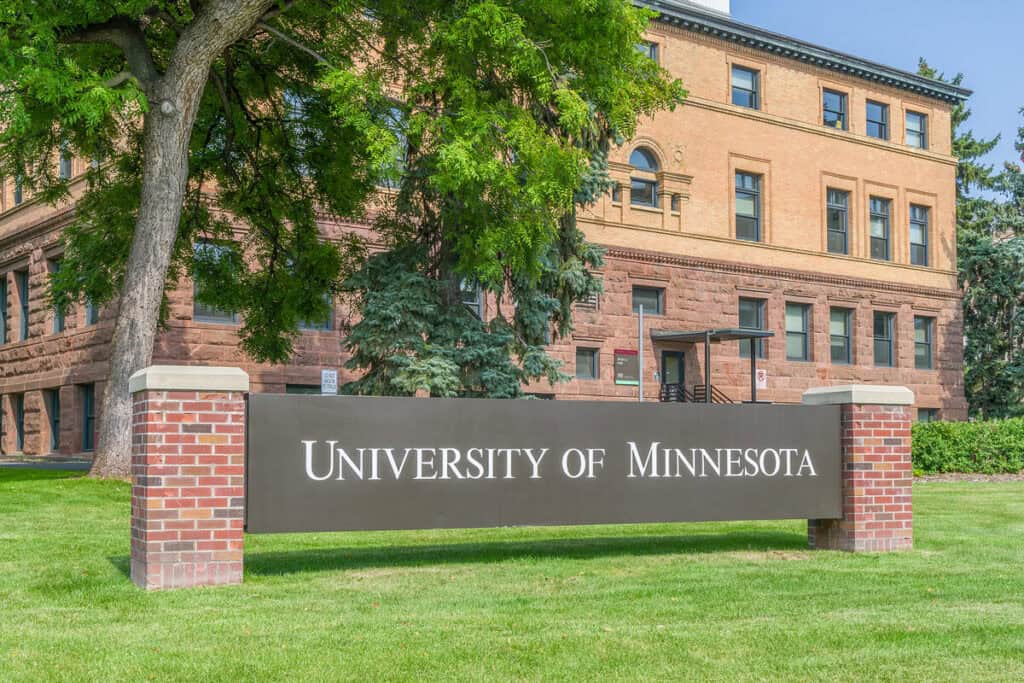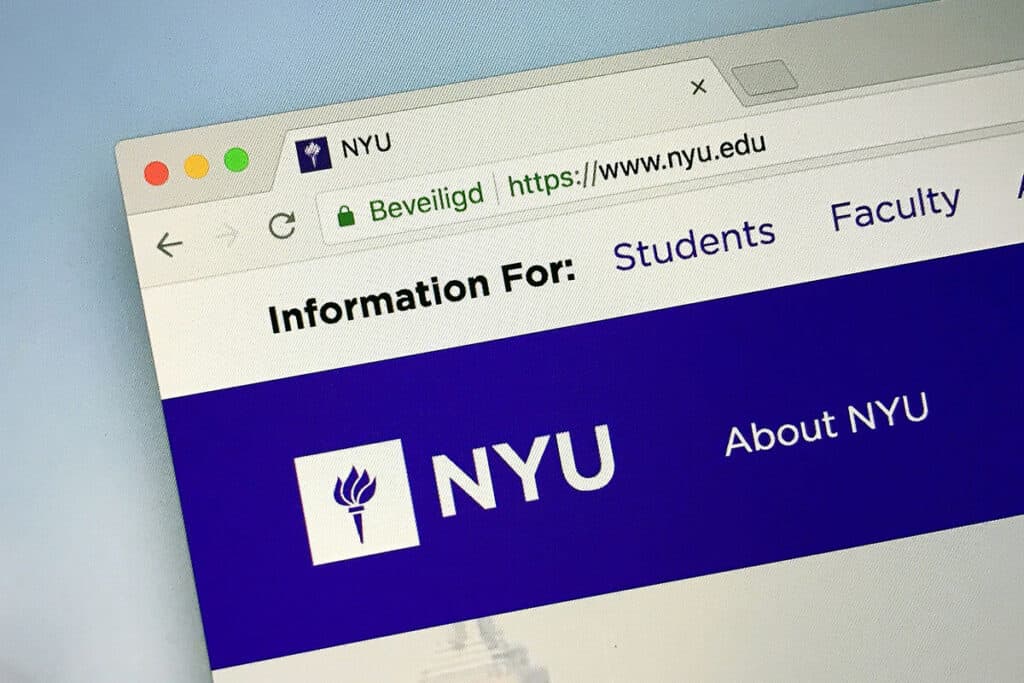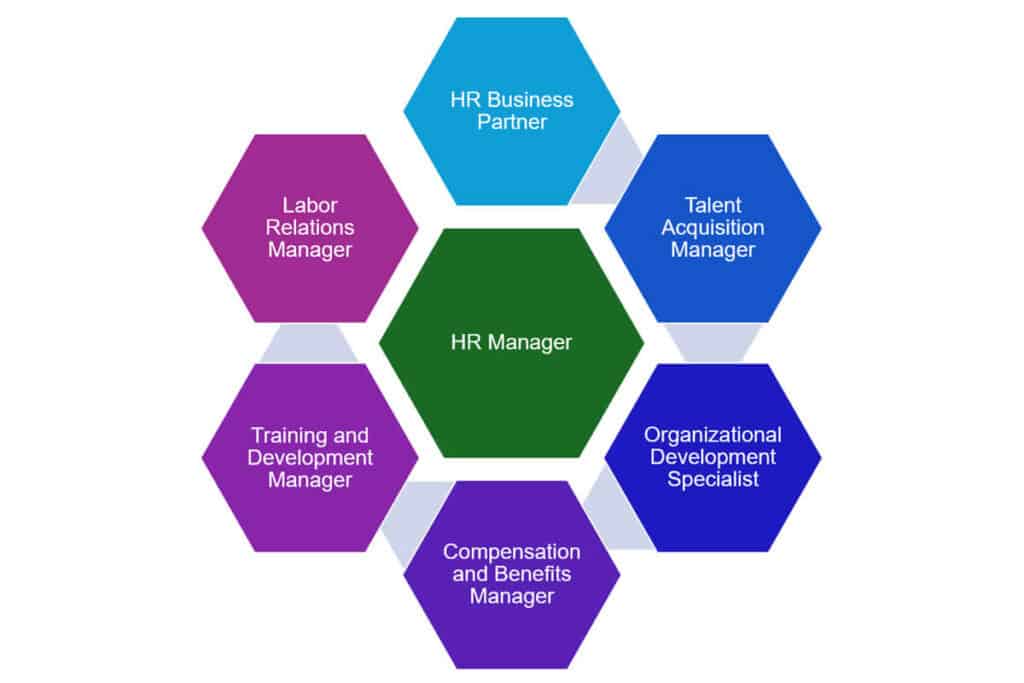Key Highlights
- The field of human resource management is growing rapidly, with an expected growth rate of 9% over the next decade, according to the Bureau of Labor Statistics.
- A master’s degree in human resources is critical in this highly competitive industry, as it provides the necessary skills and knowledge to excel in this field.
- The top-ranked Human Resources masters programs in 2024 offer a comprehensive curriculum that covers key areas such as strategic human resource management, labor relations, and human capital management.
- Prestigious universities such as Cornell University, the University of Minnesota, and New York University offer top-ranked human resources masters programs.
- Graduates from these programs have a high career placement rate and can expect to earn competitive salaries in human resource management.
Table of Contents
ToggleIntroduction
The services provided by human resource management team members are critical in corporate environments, making it a great field for people interested in working with others and helping them grow into their full potential.
Human resources professionals manage the most valuable asset—people. Focusing on creating a productive workforce, skilled HR professionals are in high demand, leading to an increase in individuals pursuing a master’s degree in human resources.

What Does A Top Ranked Human Resources Masters Program Provide?
A master’s degree equips students with the necessary knowledge and skills for success in HR management, covering many of the following areas, depending on its specialty:
- Recruitment or Talent Acquisition
- Training and Development
- Employee Relations
- Labor Relations
These skills form the foundation for strategic HR management, enhance career prospects, and develop leadership skills.
This deep dive into top-ranked human resources masters programs examines their fields of study and highlights the top ten programs for 2024. Ranked based on curriculum quality, innovation, and career opportunities, these programs offer the education and skills needed for a successful HR management career.
Key Features of Leading Top-Ranked Human Resources Masters Programs
The top-ranked human resources masters programs for 2024 share several key features that set them apart from other programs.
These can be organized into several areas, including the curriculum, the faculty, student resources, networking, practical educational opportunities, and location. Each is worth exploring during program selection.
HR Core Curriculum
An HR graduate degree should offer a comprehensive curriculum to ensure graduates are well-equipped to handle all areas of human resources management while focusing on leadership development and strategic human resource management.
This ensures graduates have a comprehensive understanding of all aspects of human resources, from operational tasks to strategic planning, and are prepared to take on leadership roles within organizations.
The core courses of study when considering an HR master program include:
- Talent Acquisition and Management covering recruitment and candidate selection, onboarding, workforce planning, and succession management.
- Employee Relations, including labor relations, conflict resolution, employee engagement, and achieving diversity and inclusion. This focus area also examines legal and ethical issues in HR, offering programs in employment law, compliance, ethical HR practices, and workplace safety and health.
- Compensation and Benefits train students in salary structures, developing incentive programs, retirement planning, and benefits management.
- Training and development includes developing learning and development strategies, performance management, leadership development, and career planning.
- Organizational Leadership and Development provides training on organizational development and change management, organizational behavior, and corporate culture as part of strategic HR management, which includes aligning HR with business strategy, HR policy development, and workforce analytics to enable students to work with business administration as a strategic partner.
Students interested in working for multi-national or global organizations can select a human resources degree program specializing in Global HR Management. This includes learning international HR strategies, cross-cultural management, global talent management, and expatriate management.
Analytical HR Curriculum
Students interested in the more technical aspects of HR and supporting HR services should ensure the program they select includes the two following focus areas:
- HR Technology and training in HR tools and software (HRIS), digital transformation, HR automation, and use of AI, as well as cybersecurity and data privacy.
- HR Analytics and Metrics prepare students in areas of strategic management based on statistics, including data-driven decision-making, metrics and reporting, and predictive analytics.
Some universities have a school of business or school of management for students interested in an executive management career path or MBA program.
Faculty
A strong faculty with extensive industry experience is critical to student success. Research the qualifications, experience, and expertise of the faculty members, looking for professors who are active in their fields, have strong academic backgrounds, and relevant professional experience.
The school’s graduation rate and other education statistics can help evaluate faculty effectiveness.
Student Resources and Practical Experience
There are many opportunities to gain practical experience, such as research opportunities and internship programs. Research and internship experience or participation in a capstone project can be valuable for future academic or professional pursuits.
Support services such as academic advising, tutoring, mental health resources, and mentorship programs to help navigate the challenges of graduate school and the quality of facilities, including libraries, laboratories, technology, and study spaces, are important for student development.
Networking and Career Placement
Career placement services, like job placement assistance, networking opportunities, and alumni connections, can significantly impact a student’s post-graduation success. Look for universities where faculty have strong industry connections and networking opportunities.
Evaluating HR Masters Programs: A Checklist
When evaluating HR master’s programs, it is important to have a mechanism for evaluating the program’s features, ensuring it can offer the knowledge and experience it advertises. Following are some key practical considerations.

Accreditation and Recognition
Accreditation and recognition: Accreditation ensures that the curriculum meets high standards of quality and rigor and that the degree is recognized in HR.
When researching HR master’s programs, look for accredited programs accredited by reputable accrediting bodies, such as the Association to Advance Collegiate Schools of Business (AACSB) or the Accreditation Council for Business Schools and Programs (ACBSP). Accreditation ensures that the program has undergone a rigorous evaluation and meets industry standards.
In addition to accreditation, consider the program’s recognition and reputation within the higher education and HR community. Look for well-regarded programs by employers, HR professionals, and industry organizations. A program with a strong reputation and recognition for providing quality education will enhance credentials and increase job marketability.
Student-to-Faculty Ratio
The student-to-faculty ratio is an important factor to consider when evaluating HR master’s programs and their curriculum. A low student-to-faculty ratio ensures personalized attention, a high-quality learning experience, and opportunities for meaningful engagement with faculty members.
A low student-to-faculty ratio allows more interaction and collaboration between students and faculty, fostering a supportive and engaging learning environment. It enables faculty members to provide individualized feedback, mentorship, and guidance to students, enhancing their learning and professional development.
When researching HR master’s programs, look for programs prioritizing small class sizes and a low student-to-faculty ratio. This ensures access to experienced faculty members dedicated to student success who can provide personalized guidance and support.
Program Format: Online vs. On-campus
The program format is important when choosing an HR master’s program. Top rated human resources master’s programs are typically offered in online, on-campus, or hybrid formats, each with its own advantages and considerations.
Online Master’s Programs: Online programs offer flexibility and convenience, allowing students to complete coursework on their own schedule from anywhere in the world. This format is ideal for working professionals or individuals who prefer a self-paced learning environment.
On-Campus Programs: On-campus programs provide a more traditional learning experience with face-to-face interaction with faculty and peers. This format offers opportunities for networking, collaboration, and in-person learning experiences.
Hybrid Programs: Hybrid programs combine online and on-campus components, offering the best of both worlds. Students can benefit from the flexibility of online coursework while participating in in-person workshops, seminars, or networking events.
When selecting a program, students should consider their learning preferences, schedule, and availability. Many of the top-ranked human resources master’s programs offer all of these formats.
Insights from Current Students and Alumni
Insights from current students and alumni offer valuable perspectives on HR master’s programs. Connecting with them can provide insights into program strengths, weaknesses, and overall experience. Hear them directly about education quality, faculty support, career services, and networking opportunities. Reach out through social media or professional networks or attend program events for firsthand experiences and feedback to make an informed decision. This will reveal much about the university and its program, and networking can also help with professional growth.
Networking Opportunities and Professional Growth
Networking opportunities and professional growth are key benefits of HR master’s programs. These programs provide students with access to a diverse network of HR professionals, alumni, and industry leaders, fostering valuable connections and opportunities for career development.
The top-ranked HR master’s programs for 2024 offer networking events, guest speaker series, and alumni mentoring programs to facilitate networking and professional growth. These opportunities allow students to connect with professionals in the field, gain insights into industry trends, and expand their professional network.
Students can enhance their professional profiles and career prospects by actively participating in networking events and engaging with the HR community. Networking opportunities also provide a platform for sharing ideas, collaborating on projects, and staying updated on the latest developments in the HR field.
Real-world Application of Skills Learned
Human resource master’s programs provide students with theoretical knowledge and emphasize the practical application of skills learned. Students can apply their knowledge to real-world scenarios through internships, projects, and case studies.
One area where these skills are highly valuable is organizational development. Human resource professionals play a crucial role in identifying areas for improvement within an organization and implementing strategies to drive positive change. This could involve developing training programs, improving employee engagement initiatives, or implementing performance management systems.
Some universities allow students to engage in capstone projects, which enable them to develop a theory and test its outcome in a real-world scenario. Examples include project theories like “Do increased recognition and reward programs impact employee retention?” These projects help students investigate important areas for organizational development while learning valuable skills.
By gaining hands-on experience in these areas, students are better prepared to address the challenges and opportunities they will encounter in the workplace, ensuring that their education translates into tangible results.
Support and Resources for Students
The top-ranked human resources masters programs for 2024 understand the importance of providing support and resources to students throughout their academic journey. These programs offer various services to ensure student success, including career counseling, mentoring programs, and networking opportunities.
Additionally, many universities provide financial aid options such as scholarships, grants, and student loans to help students fund their education. Prospective students should explore these opportunities and determine their available options.
Furthermore, universities often provide resources such as libraries, research centers, and online databases to support students’ academic pursuits. These resources can enhance the learning experience and give students the tools to excel in their studies.
Top Ranked Human Resources Masters Programs for 2024
1. Cornell University: Master of Industrial and Labor Relations

Cornell University offers one of the top-ranked Human Resources master’s programs through its highly regarded Master of Industrial and Labor Relations program. This program prepares students for careers in industrial and labor relations while also providing them with a broad background in human resources and related fields. The curriculum covers labor law, collective bargaining, and organizational behavior. Students also have the opportunity to gain practical experience through internships and research projects.
The Master of Industrial and Labor Relations program at Cornell University is known for its strong faculty, mentorship program, and comprehensive curriculum. Graduates from this program are well-equipped to handle the complex challenges of the labor market and make a positive impact in their organizations. With its strong focus on labor relations, this program is an excellent choice for those interested in pursuing a career in this field.
2. Texas A&M University’s Mays Business School: Master of Science in Human Resource Management

Another top-ranked Human Resources master’s program is Texas A&M University’s Mays Business School. It offers a Master of Science in Human Resource Management (MS-HRM), a rigorous 16-month program that prepares students for strategic leadership roles in HR. The curriculum covers critical HR areas, including recruitment, labor relations, employment law, compensation, employee training, talent management, and organizational effectiveness.
The Master of Science in Human Resource Management program at Texas A&M University’s Mays Business School emphasizes leadership development, strategic thinking, and business acumen, enhanced through workshops and interactions with Fortune 500 executives. Students also benefit from practical, experiential learning opportunities, career coaching, and networking events with industry leaders, ensuring they are well-equipped for the job market.
3. University of Minnesota: Master of Human Resources and Industrial Relations

The University of Minnesota offers a highly respected Master of Human Resources and Industrial Relations program. This top-ranked Human Resources master’s program prepares graduate students for careers in human resources management, labor relations, and related fields. The multi-disciplinary curriculum provides a foundation in psychology, economics, business, ethics, culture, and law, while focusing on all HR disciplines.
The Master of Human Resources and Industrial Relations program at the University of Minnesota is known for its strong faculty and rigorous curriculum. Students can gain practical experience through internships and experiential learning opportunities. Graduates from this program are well-prepared to tackle the complex challenges of the modern workplace and positively impact their organizations, and 98% of students are employed within six months after graduating.
4. New York University: MS in Human Resource Management and Development

New York University offers an MS in Human Resource Management and Development, a top-ranked Human Resources master’s program. This program is designed to provide students with the skills and knowledge needed to excel in human resource management. It covers talent acquisition, performance management, and organization development, making it a top choice for those interested in human capital management.
The MS in Human Resource Management and Development program at New York University is known for its industry-focused curriculum and strong emphasis on practical skills. Students can gain hands-on experience through internships and experiential learning opportunities in a major metropolitan environment. Graduates from this program are well-prepared to take on leadership roles in human resource management and make a positive impact in their organizations.
5. DePaul University: MS in Human Resources

DePaul University offers a highly respected MS in Human Resources program. This program is designed to provide students with the skills and knowledge needed to excel in human resource management. The curriculum offers specialization through focused tracks in talent management, employee relations, and strategic human resource management.
The MS in Human Resources program at DePaul University is known for its flexibility (part-time completion of the degree is possible), industry connections, and practical approach to learning. Students can work on real-world projects, gain hands-on experience, and join other graduates who have found leadership roles like Diversity Equity and Inclusion Director, Global People and Talent Leader, Compensation Analyst, or Talent Acquisition Manager. This program combines academic rigor with practical experience.
6. University of Illinois Urbana-Champaign: Master of Human Resources & Industrial Relations

The University of Illinois Urbana-Champaign offers a highly regarded Master of Human Resources and Industrial Relations program. This online or onsite program is designed to provide students with the knowledge and skills needed to excel in human resources and industrial relations. The curriculum covers human resources, industrial relations systems, and quantitative methods for labor relations, compensation and benefits, and organizational behavior.
The Master of Human Resources & Industrial Relations program at the University of Illinois Urbana-Champaign is known for its strong faculty and comprehensive curriculum. This program is a multi-disciplinary approach with joint faculty across economics, psychology, law, business administration, and history to round out students’ backgrounds.
7. Michigan State University: Master of Human Resources & Labor Relations

Michigan State University offers a highly respected Master of Human Resources & Labor Relations program. This program provides students with seven SHRM-aligned courses of study, including Human Resources Management, Strategy and Firm Performance, International HR and Labor Relations, Organizational Change Leadership, Workplace Law and Policies, Labor Relations and Collective Bargaining, and Analytical Skills for HR and LR.
The Master of Human Resources & Labor Relations at Michigan State University is known for its rigorous curriculum and strong emphasis on practical skills. They boast a 98-100% intern placement, 95-100% career placement, and a $83K starting salary for their graduates.
8. University of Southern California: Master of Science in Human Resource Management

The University of Southern California offers a highly respected Master of Science in Human Resource Management program. The curriculum emphasizes the strategic role of HR in global organizations. It includes talent management, total rewards, performance management, learning and development, employee relations, and HR analytics. It is known for providing programs like diversity and inclusion, HR technology, and corporate social responsibility in an international environment.
The Master of Science in Human Resource Management program at the University of Southern California is known for its strong faculty and comprehensive curriculum. Students can gain practical experience through internships and research projects, making it a top choice for those seeking professional studies.
9. Georgetown University: Master’s in Human Resources Management

Georgetown University offers a highly regarded Master’s in Human Resources Management program designed to prepare students to become influential strategic HR leaders. The curriculum provides a holistic approach to HR management, combining focused study and practical application. It covers the core HR curriculum needs, including talent management, employee relations, and strategic human resource management.
Georgetown University’s Master’s in Human Resources Management program is known for its strong faculty and rigorous curriculum, which includes blending a field of study with hands-on experience. Students have opportunities to practice their skills through client engagements and events with some of the field’s leading experts. organizations. Graduates are prepared for leadership and executive roles.
10. University of Houston: Master of Science in Human Resource Development

The University of Houston offers a Master of Science in Human Resource Development (HRD) designed for professionals aiming to lead and implement talent and performance strategies in diverse organizations. The program emphasizes data and value, encouraging students to evaluate assumptions, clarify problems, and design interventions like learning strategies and performance evaluations. It addresses challenges such as embedding learning in work, assessing the impact of talent strategies, and building organizational capability in the human resources field.
The Master of Science in Human Resource Development program at the University of Houston partners with companies for experiential learning, ensuring the practical application of academic concepts. This degree prepares graduates for leadership roles in HRD.
Other HR Masters Programs and Opportunities
While these programs are listed among the best, other universities, including Villanova University, Vanderbilt University, Ohio State University, Florida International University, Purdue University, and Washington University, for example, provide programs that can be considered. Students can also investigate virtual learning opportunities in these universities; some offer top-ranked human resources masters programs.
Why Pursue a Master’s in Human Resources?
Pursuing a master’s degree in Human Resources (HR) offers several benefits and opportunities for individuals looking to advance their careers. These should be considered when deciding on the cost and benefits of completing a master’s program in Human Resources.
Advanced Roles and Leadership Positions

A master’s degree in Human Resources (HR) opens up a world of advanced roles and leadership positions for HR professionals. With the comprehensive knowledge and skills gained through a master’s program, HR professionals can take on challenging and impactful organizational roles.
The specialized curriculum of HR master’s programs enables HR professionals to fill advanced roles and leadership positions like the following:
- HR Manager: Overseeing the HR department and managing all aspects of HR operations within an organization.
- HR Business Partner: Collaborating with business leaders to align HR strategies with organizational goals and driving HR initiatives.
- Talent Acquisition Manager: Leading recruitment efforts and developing strategies to attract and retain top talent.
- Organizational Development Specialist: Implementing programs and initiatives to enhance organizational effectiveness and employee engagement.
- Compensation and Benefits Manager: Designing and managing compensation and benefits programs that attract and motivate employees.
- Training and Development Manager: Developing and implementing training programs to enhance employee skills and performance.
- Labor Relations Manager: Managing employee relations, including labor negotiations, grievances, and compliance with labor laws.
Increased Salary Potential and Career Advancement
A master’s degree in Human Resources (HR) can significantly increase salary potential and pave the way for career advancement. HR professionals with a master’s degree typically earn higher salaries and have greater career growth opportunities than those with only a bachelor’s degree.
The advanced knowledge and skills gained through a master’s program enable HR professionals to take on more challenging and strategic organizational roles, leading to increased salary potential and career advancement. According to the Bureau of Labor Statistics, the median annual wage for human resource managers was $136,350 in 2023, significantly higher than the average for all occupations. With a projected growth rate of 9% in the field, now is a great time to pursue a master’s degree in human resources to achieve career advancement.
Additionally, a master’s degree in HR demonstrates a commitment to professional development and expertise in the field, making HR professionals more competitive in the job market. It opens doors to higher-level positions, such as HR director or vice president of HR, with increased responsibilities and compensation.
Specializations and Niche Fields in HR
A master’s degree in Human Resources (HR) offers the opportunity to specialize in specific areas of HR and pursue niche fields. Specializations provide in-depth knowledge and expertise in specific aspects of HR, allowing professionals to specialize their skills and focus on areas of interest.
Some popular specializations and niche fields within HR include:
- Talent Management: Focusing on attracting, retaining, and developing top talent within organizations.
- Organizational Development: Concentrating on improving organizational effectiveness and employee engagement.
- Employment Law: Specializing in the legal aspects of HR, including labor laws, regulations, and compliance.
- Compensation and Benefits: Focusing on designing and managing compensation and benefits programs to attract and motivate employees.
- Diversity and Inclusion: Concentrating on creating diverse and inclusive workplaces and implementing strategies to promote diversity.
- HR Analytics: Using data and analytics to drive HR decision-making and improve organizational performance.
Conclusion
Pursuing a Master’s in Human Resources can open doors to advanced roles, increased salary potential, and specialized career paths. The top-ranked human resources masters programs for 2024 offer curriculum innovation, expert faculty, hands-on learning experiences, and global perspectives. Evaluating accreditation, student-to-faculty ratio, program format, and alumni success stories are vital considerations.
These programs provide networking opportunities, real-world skill applications, and robust student support.
A master’s in HR transforms students into strategic thinkers adept at building a culture that aligns with company values. They empower employees, helping to drive the organization to long-term success.
HR programs prepare students to be strategic partners who influence key business decisions and help lead the organization through the complexities of today’s workplace, leveraging diversity and inclusion and helping to get the most out of our employees through training and development, career growth, and motivational strategies.




